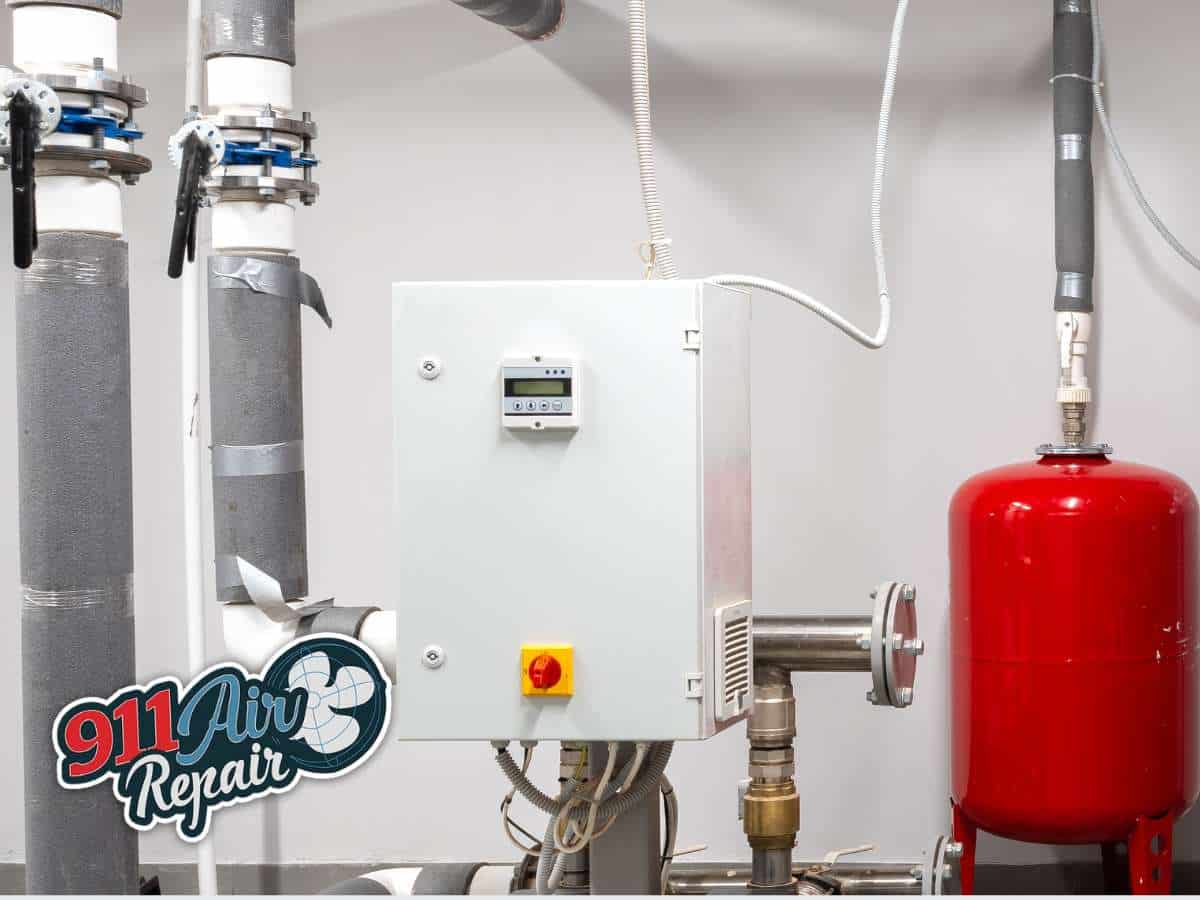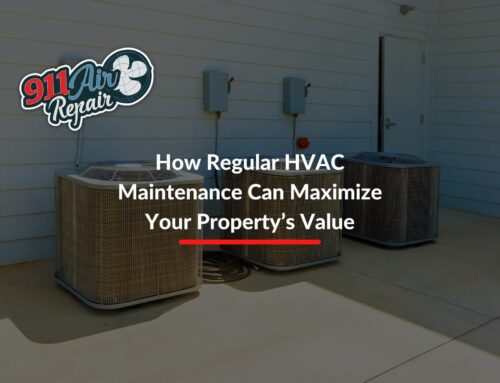Learn The Pros & Cons Of Heat Pumps & Furnaces To Keep Your Home Warm & Cozy
Choosing the right heating system is crucial for keeping your home warm, especially as temperatures drop. Heat pumps and furnaces are common options, each with distinct pros and cons.
That's why our Maricopa AC contractor is ready to explain the differences and similarities between these two options so that you can be well-informed before spending money. Stay with us to learn more!

What Is a Heat Pump & How Does It Work?
A heat pump is a versatile heating and cooling system that works by using electricity to transfer heat from a cool space to a warm one. Unlike other systems that generate heat, this one simply moves heat from one place to another.
Heat pumps can both heat and cool your home. In the summer, they transfer heat from the inside to the outside, and in the winter, they extract heat from the outside and transfer it inside.
According to our Tempe AC contractor, heat pumps are typically more energy-efficient than furnaces because they transfer heat rather than generate it.
Different Types Of Heat Pumps Explained
Let's take a look at the different kinds of heat pumps:
- The most prevalent type of heat pump is an air-source heat pump. It transfers air between the inside and outside of your home through a coil, which helps heat or cool your home.
- Next is the ground-source heat pump, also known as geothermal, which transfers heat from the ground to the interior or the other way around, using underground wells as its heat source.
- Lastly, we have a gas-source heat pump, which is less popular. A gas-source heat pump uses a natural gas-powered coil to increase heat production. This type of heat pump is similar to the more common air-source heat pump, but is not as widely used.
Pros:
- Heat pumps are highly energy-efficient systems, often providing more heating or cooling for each unit of energy consumed.
- They're an excellent choice for areas with moderate temperatures because they provide year-round climate control.
- Heat pumps produce fewer greenhouse gas emissions than traditional heating systems that rely on fossil fuels.
- While the initial installation with an AC contractor may be a bit more expensive, heat pumps can save homeowners money in the long run due to their lower operating costs.
- Compared to traditional heating systems, heat pumps require less maintenance. They don't involve combustion, so there's no need to worry about fuel or gas.
Cons:
- The upfront cost of installing a heat pump can be higher than that of traditional heating systems like furnaces or boilers.
- While heat pumps are highly efficient in moderate climates, they can struggle in extremely cold temperatures.
- Installing a heat pump can be more complex than traditional systems, especially if it's a ground-source (geothermal) heat pump that requires significant excavation.
- Some heat pumps can produce noticeable noise during operation, especially when the compressor is running.
What Is a Furnace & How Does It Heat Your Home?
Furnaces are familiar systems that generate heat by burning fuel or using electricity to warm air, which is circulated throughout the home.
The primary components of a furnace are the burners, the heat exchangers, a blower fan and a flue. Each of these components have different and essential purposes to make your furnace work properly. As soon as one of them is damaged, you must change it with the help of a Casa Grande AC contractor.
Common Types Of Furnaces For Home Heating
Similar to heat pumps, there are also more than one type of furnaces. These are:
- Gas furnaces: These are the most common type and use natural gas to generate heat. The gas is burned in a combustion chamber, and the heat produced is transferred to the air, which is then distributed via ducts.
- Electric furnaces: These use electric heating elements to generate heat. While they are easy to install and maintain, they tend to be less energy-efficient and more expensive to run compared to gas furnaces.
- Oil furnaces: These use oil to generate heat. While less common today, they are still used in areas where natural gas is not available.
Pros:
- Furnaces are designed to generate a significant amount of heat quickly, making them excellent at warming a home fast.
- Unlike heat pumps, which can lose efficiency in very cold temperatures, furnaces provide consistent and reliable heat even in the harshest winters.
- Furnaces typically have a lower upfront installation cost compared to heat pumps.
- Furnaces, especially gas and oil models, tend to have a long lifespan. A well-maintained furnace can last up to 20 years or more.
Cons:
- Gas and oil furnaces burn fuel to produce heat, which can lead to higher energy bills, especially if the system is not properly maintained.
- Gas and oil furnaces rely on fossil fuels, which can contribute to higher carbon emissions and environmental pollution.
- Furnaces that use combustion (gas or oil) can affect indoor air quality, as they may release pollutants like carbon monoxide if not properly maintained.
- Furnaces require a system of ducts to distribute heated air throughout the home.
Factors To Consider When Choosing Between Heat Pumps & Furnaces
When choosing between a heat pump and a furnace, remember to consider a few factors first, such as the climate in your area and your budget for installation and maintenance. Avoid choosing a system that exceeds your budget or doesn't meet your needs.
You should also consider your preference for energy efficiency, and the environmental impact. Each system has its strengths, and the right choice for your home will depend on your specific needs and long-term goals.
In essence, there's no universal answer for it because it basically depends on your needs. What works better for your neighbor, doesn't necessarily work well for you.
Need Help Choosing Or Installing a Heating System? Contact 911 Air Repair Today
If you don't know which system is right for you or need help with installation, maintenance, or repairs, 911 AC Repair is here to help. Our team of HVAC experts in Maricopa can help you make an informed decision and ensure your home stays comfortable year-round. Contact us today to schedule a consultation or service!
19756 N John Wayne Pkwy STE 106,
Maricopa, AZ 85139
Phone: (480)-360-1234
Email: support@911-ac.com




